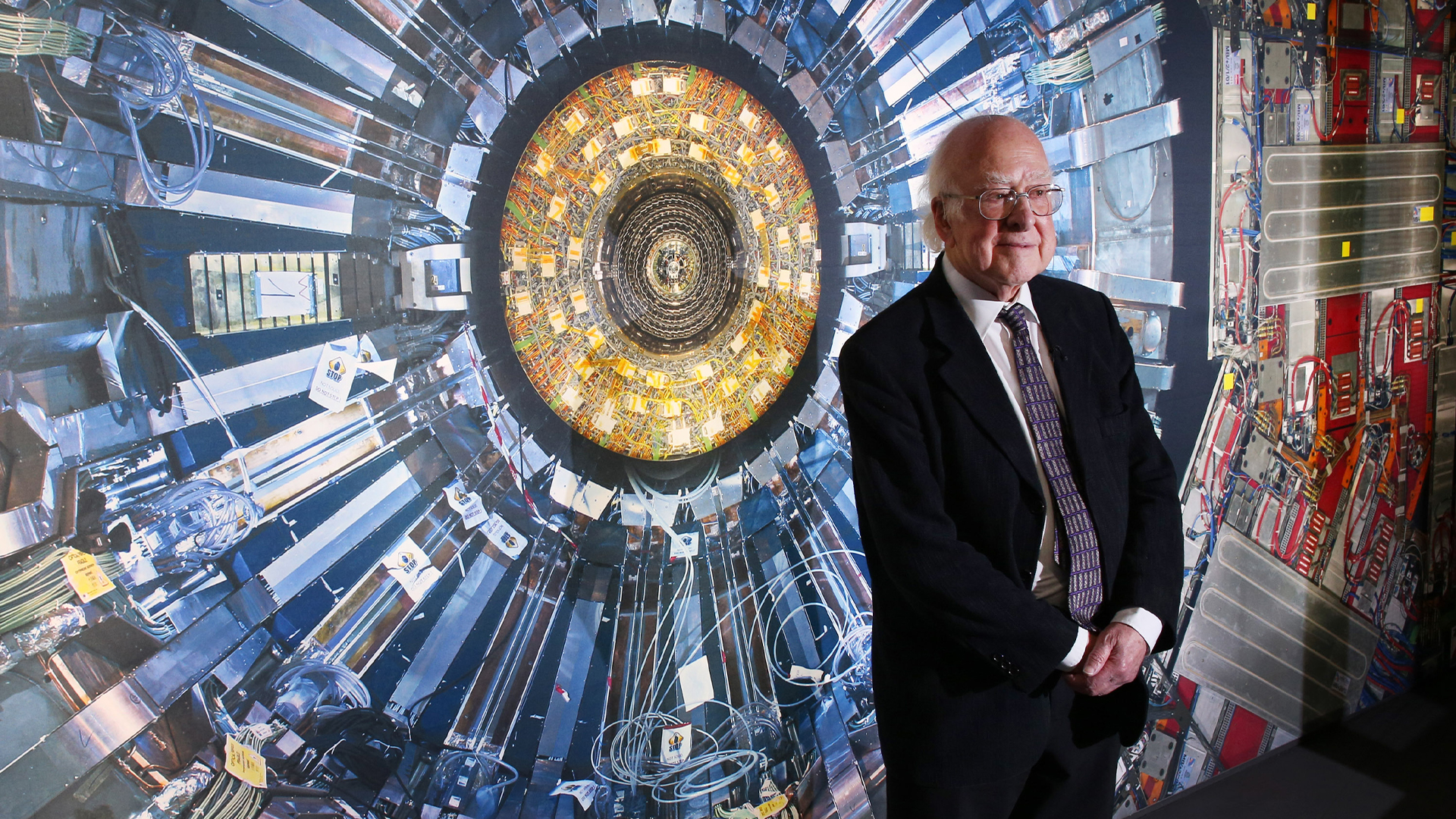
Peter Higgs, the theoretical physicist who predicted the existence of the Higgs boson, has died at the age of 94.
The University of Edinburgh confirmed the Nobel Prize-winning physicist's April 8 death following a short illness in a statement released Tuesday (April 9). Higgs was a professor emeritus at the university, where he worked beginning in 1960 until his retirement in 1996.
Higgs is best known for his pioneering work in predicting the masses of subatomic particles. He was awarded the Nobel Prize in physics in 2013 alongside Belgian physicist François Englert for their 1960s work predicting the existence of a particle that, by interacting with other particles, gives them mass. This particle became known as the Higgs boson. Following a 50-year search, the Higgs boson was finally detected in 2012. It was discovered using the Large Hadron Collider, the world's largest particle accelerator, which sits on the border of France and Switzerland.
Related: What is the Higgs boson?
Higgs was born in Newcastle upon Tyne, England, on May 29, 1929. He earned his doctoral degree from King's College London in 1954. A bedeviling question in physics at the time was how elementary particles such as the electron and quark have mass. In a 1964 paper, Higgs posited that these particles gain their mass through an interaction with a field, now known as a Higgs field, and that this Higgs field should give rise to a detectable particle, the Higgs boson.
Actually detecting the Higgs boson was a massive challenge, however, because these particles are vanishingly rare and decay within fractions of a second. It took decades of effort to finally detect the Higgs boson, finally proving Higgs' theory correct. The particle is 130 times more massive than a proton, but it has no charge and no spin (or angular momentum). Without it, no other particle would have mass.
Higgs reacted to the news of the Higgs boson discovery by welling up — an emotional reaction he later explained to science writer Ian Sample. "I was knocked over by the wave of the reaction of the audience," Sample quoted Higgs as saying in a 2013 article. "Up until then I was holding back emotionally," Higgs added, "but when the audience reacted, I couldn't hold back any more."







